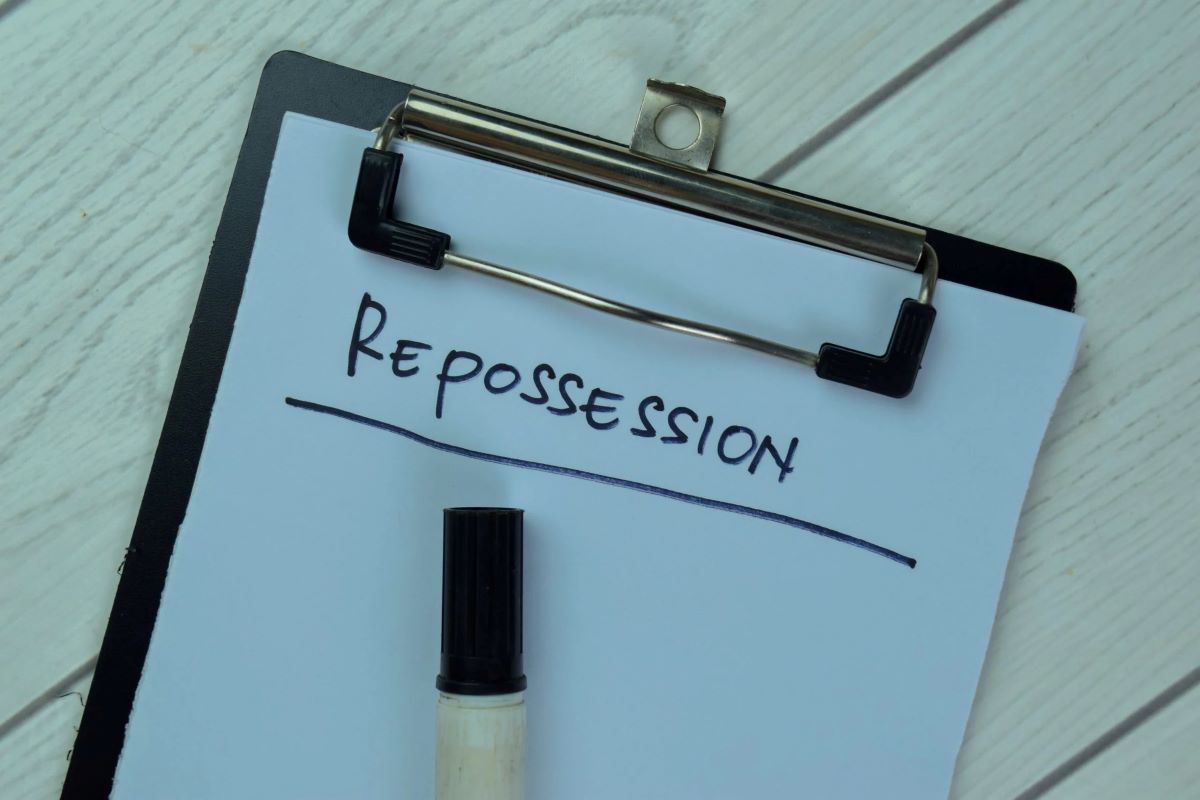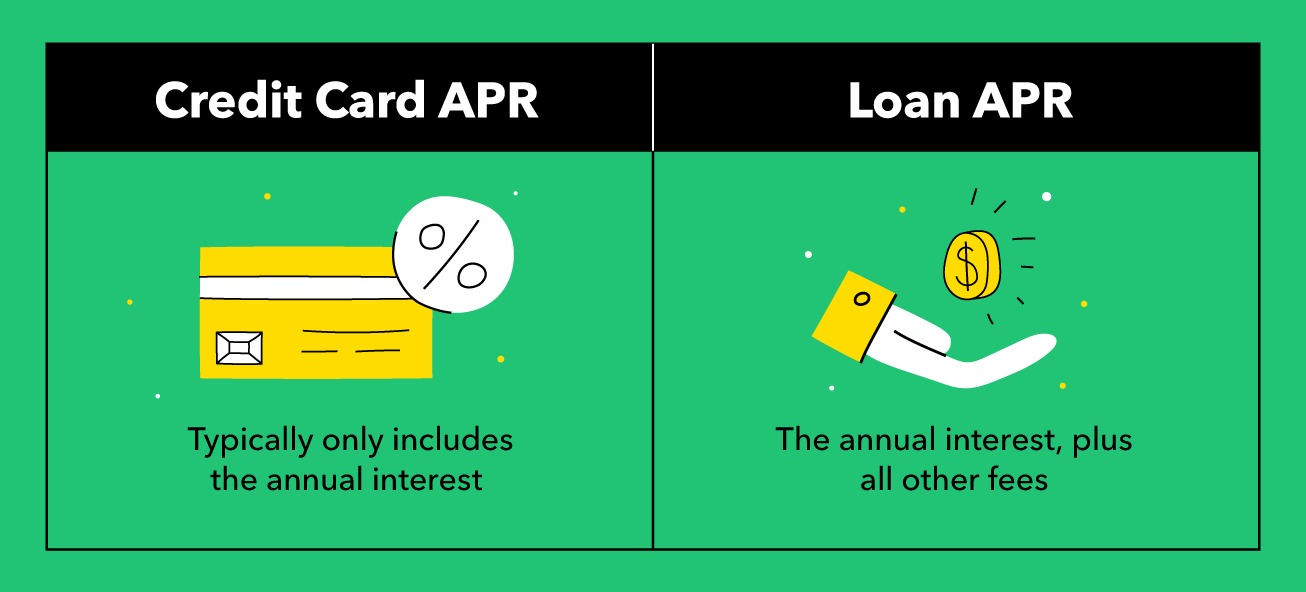Home>Finance>How Long Does It Take For A Repo To Fall Off Your Credit


Finance
How Long Does It Take For A Repo To Fall Off Your Credit
Published: January 8, 2024
Learn how long it takes for a repossession to be removed from your credit report and improve your finance with our helpful guide.
(Many of the links in this article redirect to a specific reviewed product. Your purchase of these products through affiliate links helps to generate commission for LiveWell, at no extra cost. Learn more)
Table of Contents
Introduction
Having a repossession on your credit report can have a significant impact on your financial health. Whether it’s a vehicle repo or another type of asset, it’s important to understand how long a repo stays on your credit and how it affects your creditworthiness.
A repossession occurs when you default on a loan or lease agreement, and the lender or lease company takes back the asset you were using as collateral. This can happen with vehicles, homes, or other valuable items used to secure a loan or lease. When a repo occurs, it signals to lenders that you were unable to fulfill your repayment obligations, which can make it more challenging to obtain credit in the future.
Understanding how long a repo stays on your credit report is essential because it directly impacts your credit score and your ability to secure favorable loan terms. In this article, we will explore the duration of a repo on your credit report, the factors that influence its longevity, and how you can remove a repo from your credit history.
It’s important to note that the information provided here is not financial advice, but rather a general guide to help you understand the impact of repossession on your credit. If you have specific questions or concerns regarding your credit situation, it’s best to consult with a qualified financial professional.
What is a Repo?
A repo, short for repossession, refers to the action taken by a lender or lease company to reclaim an asset that was used as collateral for a loan or lease agreement. When you enter into a loan or lease agreement, such as a car loan or a mortgage, the lender typically holds a security interest in the property or asset being financed. This means that if you fail to make timely payments or default on the agreement, the lender has the right to take possession of the asset to recover their losses.
Repossession often occurs when the borrower or lessee falls behind on payments, resulting in a breach of the loan or lease agreement. The lender or lease company may then initiate legal proceedings to repossess the asset. In the case of a vehicle repo, for example, the lender may send a repossession agent to retrieve the car. Once the asset is repossessed, the lender will typically sell it to recover the outstanding balance on the loan or lease agreement.
It’s essential to understand that repossession is typically the last resort for lenders or lease companies. They would prefer that borrowers fulfill their financial obligations and make timely payments. However, repossession becomes necessary when other attempts to collect payment have been unsuccessful.
While vehicle repossession is the most commonly known type, repossession can apply to other assets as well, such as furniture, electronic equipment, or even real estate. The specific laws and regulations regarding repossession vary by jurisdiction, so it’s important to familiarize yourself with the laws in your area if you find yourself in a situation where repossession is imminent.
How Does a Repo Affect Your Credit?
A repo can have a significant impact on your credit, as it is a clear indication to lenders that you have had difficulty fulfilling your financial obligations in the past. Here are some key ways in which a repo can affect your credit:
- Negative Entry on Your Credit Report: When a repossession occurs, it will be noted on your credit report as a negative entry. This negative entry can stay on your credit report for several years, which can have a detrimental impact on your credit score.
- Credit Score Drop: A repo can cause a significant drop in your credit score. The exact impact on your score will depend on various factors, including your overall credit history and the severity of the repo. Generally, the more recent the repo, the more negative impact it will have on your credit score.
- Difficulty Obtaining Credit: A repo on your credit report can make it more challenging to obtain new credit. Lenders may view you as a higher risk borrower and may be hesitant to extend credit to you. Even if you do get approved for credit, you may face higher interest rates and less favorable terms.
- Affected Loan and Lease Eligibility: Having a repo on your credit history can affect your eligibility for future loans and leases. For example, if you had a vehicle repo, it may be more difficult to secure a car loan in the future. This can make it challenging to replace the repossessed asset or obtain other essential items.
- Impact on Other Financial Opportunities: A repo can also impact other financial opportunities, such as renting a home or obtaining insurance. Landlords and insurance companies often check credit history to assess the risk of potential tenants or policyholders. A repo can make you appear less financially stable, potentially leading to higher insurance premiums or difficulty securing rental housing.
It’s important to note that the negative effects of a repo on your credit can be long-lasting. However, as time passes and you establish a positive credit history, the impact of the repo will gradually lessen.
The Duration of a Repo on Your Credit Report
The duration of a repo on your credit report depends on several factors, including the type of repo and the credit reporting agency’s policies. Generally, a repo can stay on your credit report for up to 7 years. However, it’s important to note that the impact of the repo on your credit score may diminish over time as long as you maintain positive credit behavior.
The specific time period that a repo stays on your credit report can vary depending on the credit reporting agency. The three major credit bureaus in the United States – Equifax, Experian, and TransUnion – typically include repossession information for 7 years from the date of the first missed payment or the date the repo occurred, whichever is earlier.
It’s important to note that the impact of a repo on your credit score is not constant throughout the entire 7-year period it appears on your credit report. The negative impact tends to be most significant in the first couple of years and gradually lessens as time passes. This means that if you continue to make responsible financial decisions and establish a positive credit history, the impact of the repo will diminish over time.
It’s also worth mentioning that some lenders may be more forgiving of a repo on your credit report than others. In some cases, you may still be able to obtain new credit even with a repo on your record, albeit with less favorable terms. However, it’s crucial to work on rebuilding your credit and demonstrating responsible financial behavior to mitigate the long-term effects of a repo.
Remember that the duration of a repo on your credit report is just one aspect to consider. It’s equally important to focus on improving your credit score and overall financial health by making timely payments, reducing debt, and utilizing credit responsibly. By doing so, you can offset the impact of a repo and increase your chances of securing better loan terms in the future.
Factors that Determine How Long a Repo Stays on Your Credit
The duration that a repo stays on your credit report is influenced by several factors. Understanding these factors can give you insight into how long the repo will impact your creditworthiness. Here are the key factors that influence the duration of a repo on your credit:
- Type of Repo: The type of repo can impact how long it stays on your credit report. Generally, vehicle repos tend to stay on your credit report for 7 years, while other types of repos, such as furniture or electronic equipment, may have a shorter reporting period.
- Date of the Repo: The date when the repo occurred plays a role in how long it stays on your credit report. Credit reporting agencies typically keep repo information on file for 7 years from the date of the first missed payment or the date the repo took place, whichever is earlier.
- State Laws: Each state has its own laws and regulations regarding the reporting period for repos on credit reports. Some states have specific provisions that can shorten or lengthen the duration of repos on credit reports.
- Credit Reporting Agency Policies: Credit reporting agencies, such as Equifax, Experian, and TransUnion, have their own policies and guidelines for how long a repo will appear on your credit report. While the general rule is up to 7 years, it’s important to check with each agency for their specific policies.
- Subsequent Positive Credit Behavior: Although a repo can have a negative impact on your credit, your subsequent positive credit behavior can help mitigate its effects. Consistently making on-time payments, reducing your debt, and demonstrating responsible financial behavior can gradually improve your creditworthiness.
It’s important to note that ultimately, the duration of a repo on your credit report is determined by the credit reporting agency, state laws, and the specific circumstances surrounding the repossession. While it may take several years for a repo to be removed from your credit report, its impact on your credit score can diminish over time as you rebuild your credit history.
How to Remove a Repo from Your Credit Report
If you have a repo on your credit report, you may be wondering if there’s a way to remove it. While it can be challenging to remove a repo from your credit history, there are a few steps you can take to potentially improve your credit standing:
- Contact the Lender: Start by reaching out to the lender or lease company that initiated the repo. A repossession does not automatically remove the debt you owe. You may be able to negotiate with the lender to settle the remaining balance or establish a repayment plan. If a settlement is reached, you can ask the lender to update the repo information on your credit report to reflect the resolution.
- Dispute Any Errors: Check your credit report for any errors related to the repo. If you notice discrepancies, such as incorrect dates or information, you have the right to dispute them with the credit reporting agency. Provide any supporting documentation to validate your claim. If the dispute is successful, the inaccurate repo entry may be removed from your credit report.
- Seek Professional Assistance: If you’re having difficulty navigating the process or negotiating with the lender, you may consider seeking help from a reputable credit repair agency or a credit attorney. They can guide you through the steps to remove the repo or address any inaccuracies on your credit report.
- Rebuild Your Credit: While the repo may remain on your credit report for several years, you can start taking steps to rebuild your credit. Make all your payments on time, reduce your overall debt, and establish a positive credit history by using credit responsibly. Over time, your positive credit behavior can outweigh the impact of the repo.
- Patience and Persistence: Removing a repo from your credit report can take time and persistence. Stay proactive and consistently monitor your credit report to ensure accuracy. It’s important to remember that even if a repo is not removed immediately, its impact will diminish over time as long as you continue to practice positive credit habits.
Keep in mind that the effectiveness of these steps may vary depending on your specific circumstances and the policies of the credit reporting agencies. It’s always a good idea to consult with a reputable professional who can provide guidance tailored to your situation.
Lastly, be wary of any companies that promise to remove a repo from your credit report for a fee. While there are legitimate credit repair services, be cautious of scams that may charge you for services they cannot deliver.
Impact of a Repo Falling Off Your Credit
When a repo falls off your credit report, it can have significant implications for your creditworthiness and financial future. Here are some key impacts you may experience:
- Improved Credit Score: The removal of a repo from your credit report can lead to an improvement in your credit score. As repossession is considered a negative event, its absence from your credit history can increase your creditworthiness in the eyes of lenders and creditors.
- Enhanced Creditworthiness: With the repo no longer visible on your credit report, you may be viewed as a lower risk borrower. This can open up opportunities for better loan terms, lower interest rates, and higher credit limits when you apply for new credit or loans.
- Increased Access to Credit: As a repo can limit your ability to obtain credit, its removal can broaden your access to credit. Lenders may be more willing to extend credit to you, allowing you to secure new loans or credit cards with greater ease.
- Improved Financial Opportunities: The absence of a repo from your credit report can positively impact your financial opportunities. You may find it easier to rent a home, obtain insurance coverage, or secure employment as some employers review credit history as part of their hiring process.
- Rebuilding Trust with Lenders: Removing a repo from your credit report demonstrates your commitment to financial responsibility and can help rebuild trust with lenders. This can lay the foundation for a stronger financial relationship and potentially lead to more favorable financial products and services in the future.
It’s important to note that even after a repo falls off your credit report, it’s crucial to continue practicing responsible financial habits. Consistently making on-time payments, keeping your credit utilization low, and managing your debt responsibly will help you maintain a positive credit profile and further improve your financial standing.
While the removal of a repo from your credit report is undoubtedly a positive development, it’s essential to remain vigilant and monitor your credit regularly. Mistakes and inaccuracies can occur, so it’s crucial to review your credit reports periodically and address any issues promptly.
Remember that rebuilding your credit and regaining trust takes time and patience. By demonstrating responsible financial behavior, you can not only mitigate the impact of a repo but also build a solid foundation for a healthy financial future.
Conclusion
Repossession can be a challenging and stressful experience that has lasting effects on your credit. Understanding the duration of a repo on your credit report and its impact is crucial for managing your financial health. While a repo can stay on your credit report for up to 7 years, its negative impact on your credit score can diminish over time as long as you maintain responsible financial habits.
If you find yourself facing a repo, it’s important to reach out to the lender or lease company to explore options for resolving the debt. Negotiating a settlement or establishing a repayment plan can help minimize the long-term impact on your credit.
Removing a repo from your credit report can be challenging, but it’s not impossible. Disputing any errors and seeking professional assistance can aid in improving your credit standing. It’s important to note that rebuilding your credit and regaining the trust of lenders takes time and persistence.
Once a repo falls off your credit report, you can experience several positive impacts. You may see an improvement in your credit score, increased access to credit, and enhanced financial opportunities. However, it’s essential to continue practicing responsible financial behavior to maintain a positive credit history.
Remember, everyone’s credit situation is unique, and there is no one-size-fits-all solution. It’s vital to consult with a qualified financial professional to address your specific circumstances and develop a tailored plan to rebuild your credit.
By taking proactive steps to improve your credit and learning from past mistakes, you can emerge from the challenges of repossession with a stronger financial foundation and the potential for a brighter financial future.














